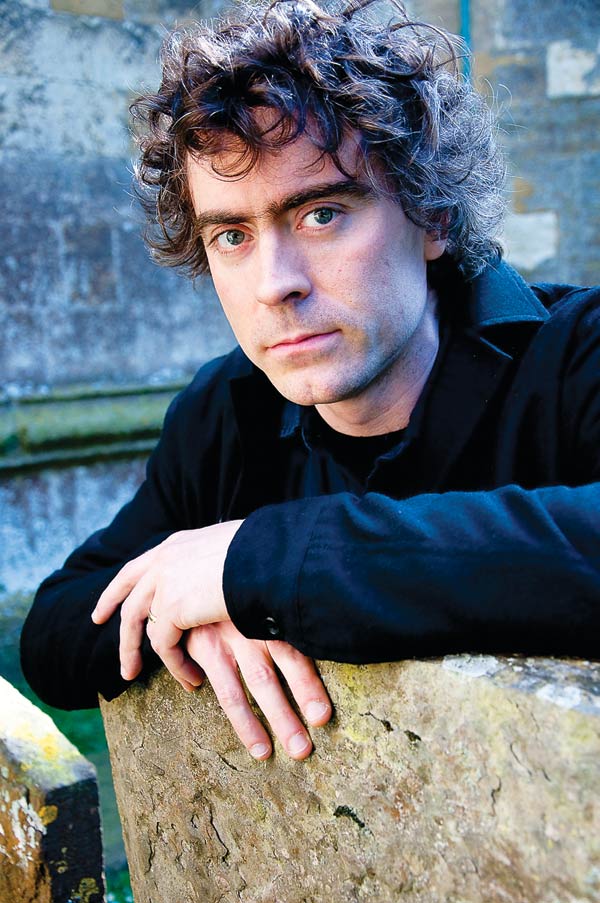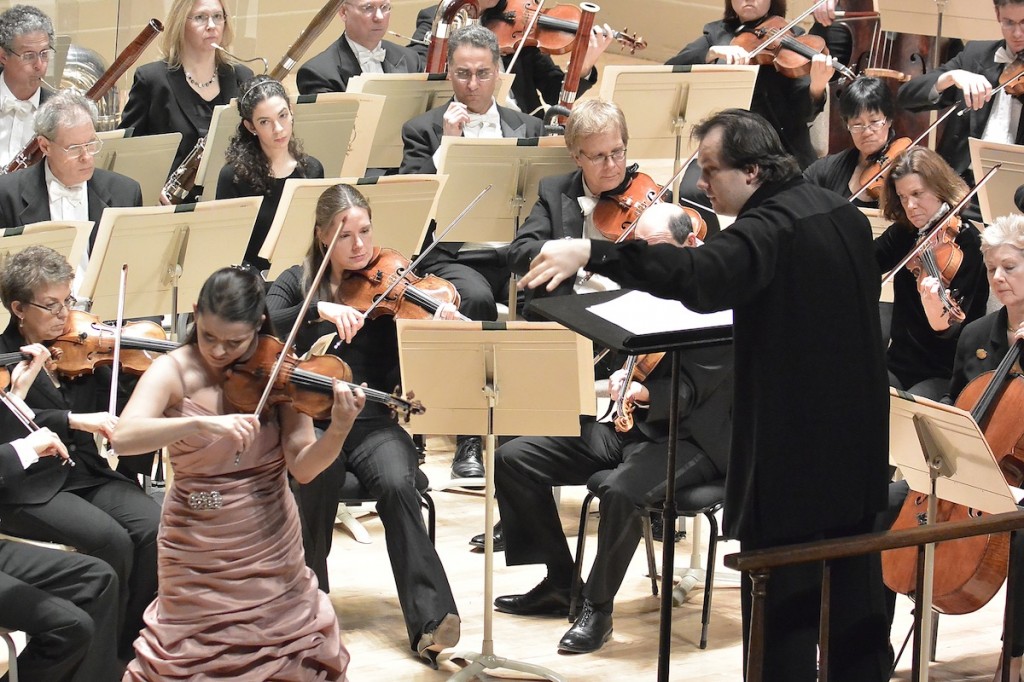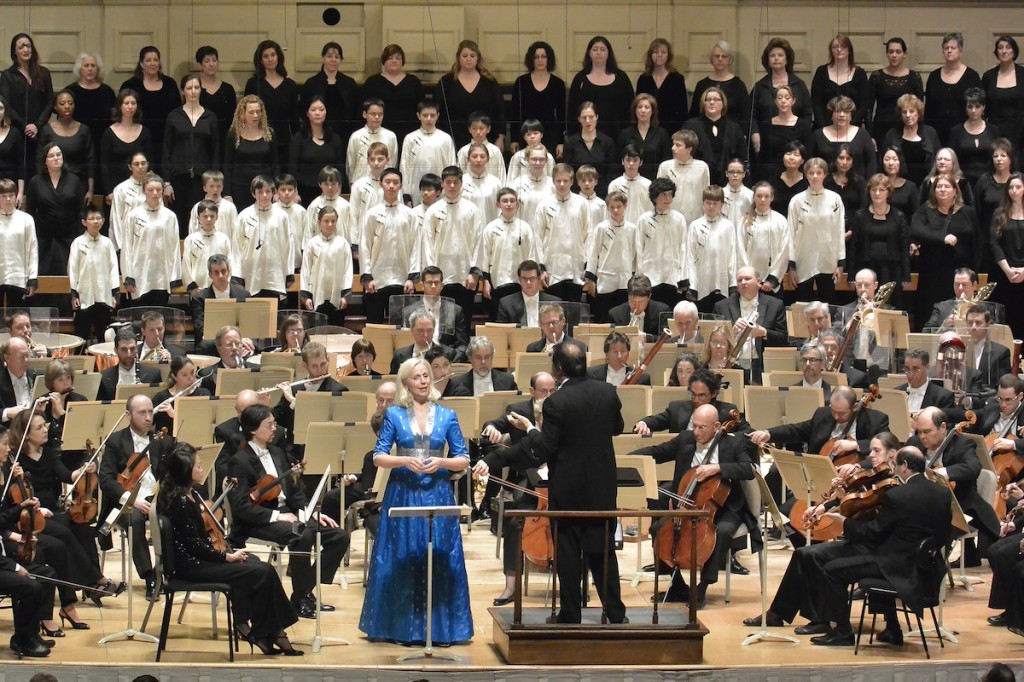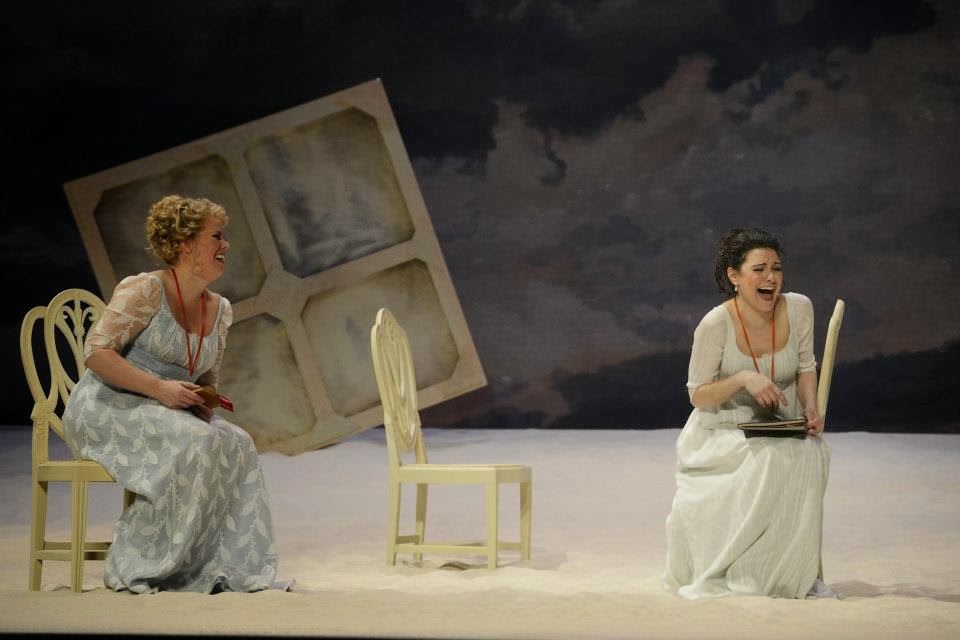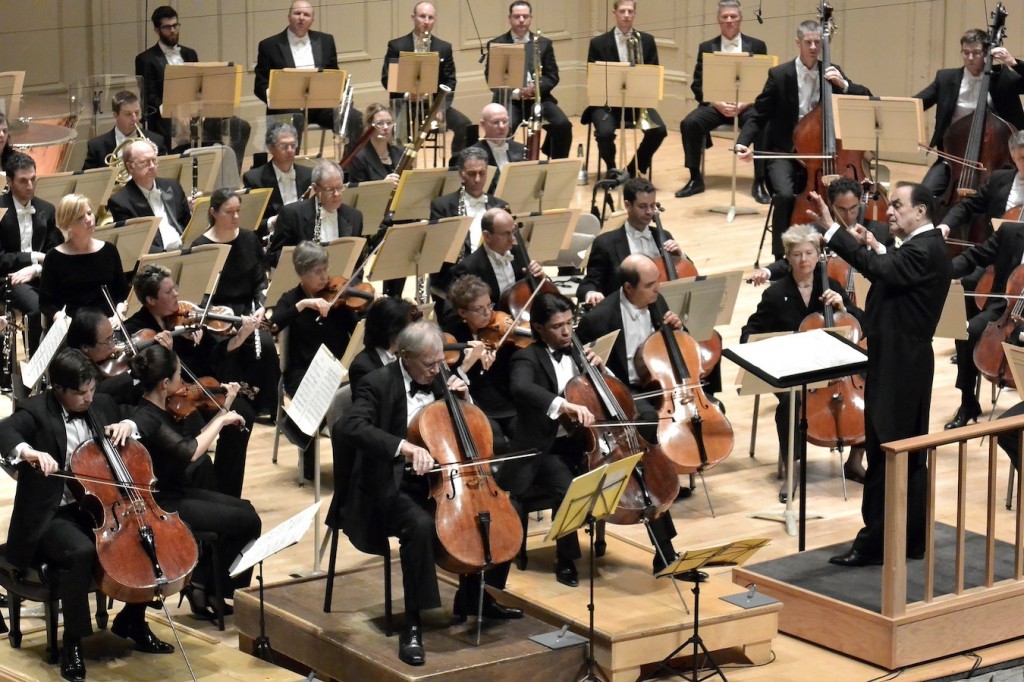The Top 10 Performances of 2013
1. Paul Lewis: Schubert Piano Sonatas
In his Boston debut presented by Celebrity Series of Boston, Paul Lewis held the audience at New England Conservatory’s Jordan Hall spellbound with nearly two hours of Schubert, Schubert, and more Schubert. And not just any Schubert, but the highest peak in the range, the imposing trilogy of sonatas (D. 958, 959, and 960) that the composer wrote in the last few months of his short life. For scope of imagination, beauty of sound, and sustained narrative arc, this January performance by a single musician alone on stage surpassed all others to top the list for 2013. (DW)
2. Baiba Skride and Andris Nelsons with the Boston Symphony Orchestra: Shostakovich Violin Concerto No. 1
Two Latvian musicians, two BSO debuts: At this January concert, violinist Baiba Skride, ably supported by conductor Andris Nelsons, stunned with her fiery and courageous playing in Shostakovich’s First Violin Concerto. Nelsons, then a dark-horse candidate for the BSO music directorship, led Tchaikovsky’s Fifth Symphony to mixed reactions: some found his interpretation fresh and inspired, while others (including this writer) thought it fussy and micromanaged. (DW)
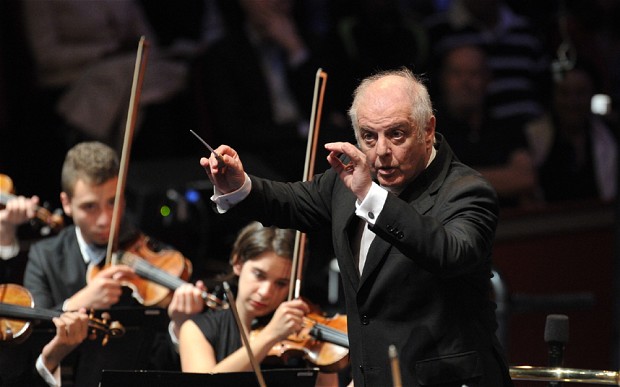
File photo: Chris Christodoulou
3. Daniel Barenboim and the West-Eastern Divan Orchestra: Beethoven
The mostly young, mostly Arab and Israeli musicians in this orchestra, founded in 1999 by Daniel Barenboim and the late Palestinian-American literary scholar Edward Said to foster listening and communication in the Middle East, played Beethoven’s Second and Third Symphonies in January as if their lives depended on it—and somebody’s probably does. For vigor and insight, these lucid performances could stand up to those of any orchestra in the land. (DW)
4. Daniele Gatti and the Boston Symphony Orchestra: Mahler Symphony No. 3
If there was any doubt that Gustav Mahler was a twentieth-century composer, Daniele Gatti quickly dispelled it last March as he led the Boston Symphony Orchestra in a taut, edgy performance of this composer’s multifarious Third Symphony. This conductor’s extraordinary ability to sustain dramatic tension through a whole evening of music was on display not only here but in two other programs this year, of Verdi and Wagner respectively. If the BSO post had been awarded solely on the basis of conspicuous recent achievements in Symphony Hall, it would have been Gatti’s in a walk. (DW)
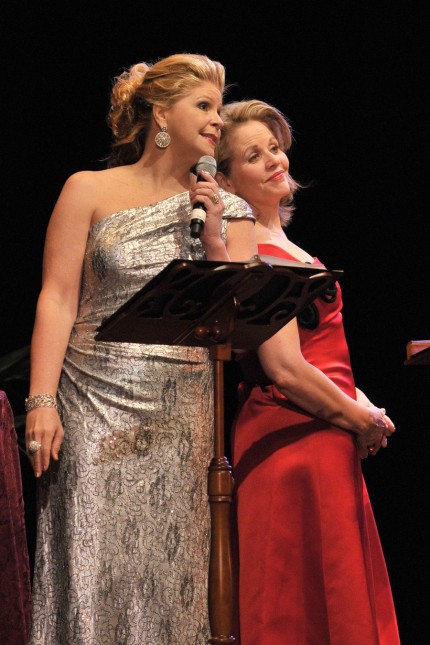
Susan Graham and Renée Fleming teamed up for a French program in February at Symphony Hall. File photo: Dan Rest
5. Renée Fleming and Susan Graham: French songs and more
By their own admission during their February joint recital at Symphony Hall, soprano Renée Fleming and mezzo-soprano Susan Graham have appeared together so often in opera productions that sometimes they think they have when they haven’t. Celebrity Series of Boston presented this charming finale to the two-diva, four-gown, six-city tour, a mellow Sunday afternoon of French songs interleaved with commentary, compliments, and reminiscences by the all-American superstars. (DW)
6. Boston Musica Viva: Weir premiere, Currier’s Vocalissimus
In one of the richest evenings of new chamber music in memory, this March concert delighted with the world premiere of Judith Weir’s Blue-Green Hill, composed for BMV; a subtle and witty Duo for Flute and Percussion by Peter Child; an energetic Double Trio for Brass and Strings, composed by Elliott Carter at age 102; and Sebastian Currier’s song cycle Vocalissimus, which offered eighteen ways of looking at a Wallace Stevens poem, and a catalogue of avant-garde vocal techniques expressively executed by soprano Zorana Sadiq. (DW)
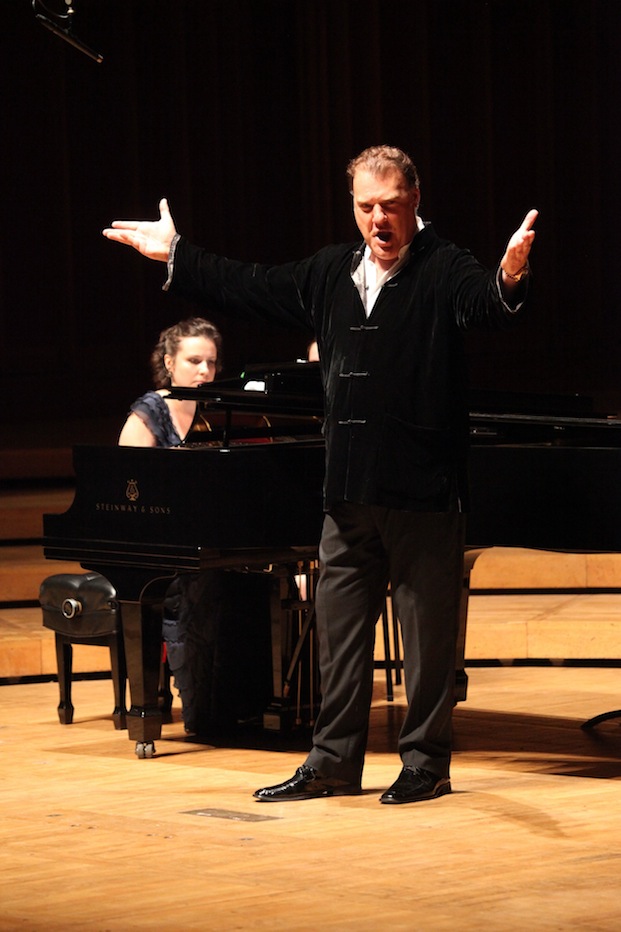
Bryn Terfel performed with pianist Natalia Katyukova in July at Tanglewood’s Ozawa Hall. Photo: Hilary Scott
7. Bryn Terfel: English and German art songs at Tanglewood
Of all the works that filled Bryn Terfel’s July recital at Tanglewood, it’s the English songs that linger in the memory. The commanding Welsh bass-baritone and pianist Natalia Katyukova offered remarkable performances of sea-faring songs by John Ireland, Peter Warlock, and Frederick Keel alongside more well-trodden works by Schumann and Schubert. (AK)
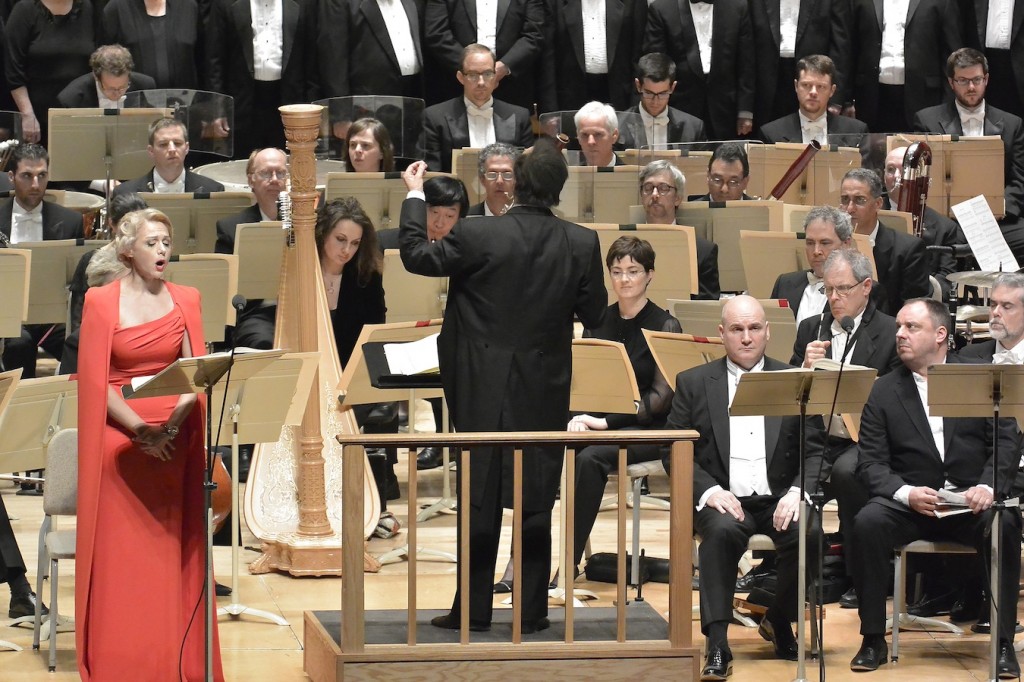
Charles Dutoit led the BSO and soloists in Benjamin Britten’s “War Requiem” in November at Symphony Hall. Photo: Stu Rosner
8. Charles Dutoit and the Boston Symphony Orchestra Britten’s War Requiem
In Britten’s bold juxtaposition of the ancient Latin Mass for the Dead with the deeply ironic war poetry of Wilfred Owen, celestial harmonies mingle with the thump of bombs, the rattle of machine guns, the whine and whistle of shells, and trumpet calls by turns ominous, urgent, and terrifying. In Dutoit’s November performance, the martial sounds had the edge, thanks to the skill and imagination of the BSO’s wind players and percussionists, who made Britten’s musical metaphors leap off the page. (DW)
9. Boston Lyric Opera: Mozart’s Cosi fan tutte
Cosi fan tutte, Mozart’s perfect little thorn of an opera, is dramatically his most consistent, but deceptively hard to pull off. The Boston Lyric Opera succeeded by playing it as a knowing, coming-of-age comedy for adults, and by supplying beautiful staging and a stellar young cast. (AM)
10. Charles Dutoit and the Boston Symphony Orchestra: Penderecki and Elgar
In celebration of Krzysztof Penderecki’s 80th birthday, Dutoit led the BSO in the Boston premiere of the composer’s angular and biting Concerto Grosso No. 1 for Three Cellos and Orchestra, with Arto Noras, Gautier Capuçon, and Daniel Müller-Schott as soloists. And the BSO’s reading of Elgar’s Enigma Variations had enough Edwardian pomp and polish to make this familiar work shine like new. (AK)
Honorable Mentions
Boston Modern Orchestra Project: “Voilà! Viola!” In February five works, including world premieres by Chinary Ung and Donald Crockett, vividly explored the capabilities of the viola, while remaining true to its nature as the middle child of the string family. (DW)
Violinist Hillary Hahn: Chaconne in D minor. In the midst of an otherwise uninspiring March recital with pianist Cory Smythe, Hahn came onstage alone and gave a performance for the ages of Bach’s solo masterwork—sustained, compelling, insightful, and deeply affecting.(DW)
Guerilla Opera: No Exit. In Andy Vores’s musical adaptation of the one-act play by Jean-Paul Sartre, commissioned and premiered by Guerilla Opera in 2008 and revived last September, the ensemble of four singers and four instrumentalists, armed with Vores’s haunting score, performed the seemingly impossible feat of turning existentialism into, if not opera, at least a gripping evening of music and theater. (DW)
Handel and Haydn Society: “A Bach Christmas.” Hey, we didn’t say which Bach. H and H’s strategy of getting you in the door with a familiar name might seem like a bait-and-switch, except that December’s program of a wee bit of J.S. Bach plus three Bach cousins and older masters such as Scheidt and Praetorius turned out to be a melodious holiday feast, cheerfully and expertly served. (DW)
David Hoose leading the Cantata Singers in the long-awaited Boston premiere of James MacMillan’s sparkling Seven Last Words from the Cross; Opera Brittenica’s pile-driving production of Britten’s The Rape of Lucretia was a bold first step for Boston’s newest opera company; The Lorelei Ensemble’s premiere of Peter Gilbert’s gorgeous song cycle Tsukimi given in November; and Gotham Early Music Scene’s vivid reconstruction of the thirteenth-century Play of Daniel at Rockport in June, made for some delightful midsummer listening. (AK)
Most Breathlessly Awaited Performance
Andris Nelsons and the BSO: Wagner, Mozart and Brahms. It isn’t every day a conductor receives a standing ovation just for stepping onstage. Following this raucous October welcome from the leadership-starved public, the newly-crowned music-director-designate and “his” orchestra felt their way through Wagner’s Siegfried Idyll; delivered sparkling, top-drawer Mozart with Paul Lewis in the Piano Concerto in C major, K. 503; and gave a Brahms Third Symphony with sensuous surfaces but few answers to its riddles—mixed results, but not bad when you’re meeting your mail-order bride for the first time. (DW)
Most Glorious Excess
Handel and Haydn Society, Boston Baroque: Messiah. Most cities don’t have one first-rate period-instrument Messiah to look forward to at holiday time. Boston has two. For a mere seven hours of your time, you could have caught Handel and Haydn’s suave playing and pearly vocals at the end of November followed by Boston Baroque’s speed, virtuosity, and sharp characterizations a couple of weeks later.
Bravest Attempt to Illuminate Music by Non-Musical Means
Lyric Stage Company of Boston: 33 Variations. In its brief January run, Moisés Kaufman’s play starred Paula Plum as a musicologist obsessed with Beethoven’s “Diabelli” Variations. The action actually got somewhat down in the weeds of research, and was accompanied at key points by an onstage pianist playing excerpts of the eponymous work. Although the play ultimately worked better as a family drama than as a musical performance (the piano hadn’t been tuned), give Kaufman points for trying to express the relationship between music and real life.
Posted in Articles
